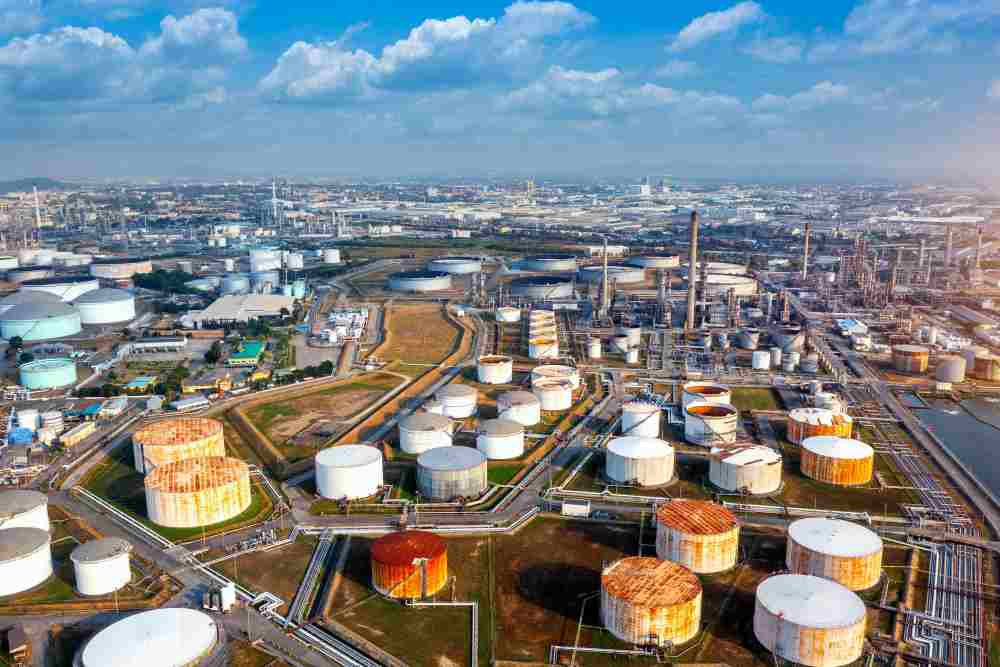What is an industrial property? and the industrial property rights in Malaysia?
Understanding Industrial Property and Industrial Property Rights in Malaysia
Industrial property is a critical component of global economic infrastructure, serving as the foundation for manufacturing, logistics, and technological innovation. In Malaysia, industrial property also intersects with a unique legal framework governing ownership, usage, and intellectual property rights. This article explores What is an industrial property? Its types, and its specific regulations and rights in Malaysia, followed by key FAQs.

What is Industrial Property?
Industrial property refers to real estate designated for industrial activities, such as manufacturing, warehousing, production, and research. These properties are distinct from residential or commercial spaces due to their functional design, zoning regulations, and infrastructure tailored to heavy machinery, storage, and logistics. Examples include factories, warehouses, power plants, and data centers.
Types of Industrial Properties
- Manufacturing Facilities: Factories for producing goods (e.g., electronics, automotive).
- Warehouses and Distribution Centers: Storage hubs for goods, often linked to supply chains.
- Industrial Estates: Clusters of industrial buildings in planned zones (e.g., Selangor Science Park).
- Specialized Facilities: Oil refineries, chemical plants, or data centers requiring specific infrastructure.
Industrial Property Rights in Malaysia: Legal Framework
In Malaysia, “industrial property rights” encompass two dimensions:
- Real Estate Rights: Ownership, leasing, and using physical industrial properties.
- Intellectual Property (IP) Rights: Patents, trademarks, and industrial designs linked to innovation.
This section focuses on real estate-related rights while briefly addressing IP protections for clarity.
1. Ownership and Foreign Investment Regulations
Malaysia encourages foreign and domestic investment in industrial properties but imposes specific regulations:
- Foreign Ownership: Foreigners can own industrial properties, but depending on the state, they may require approval from state authorities. For example, in Johor, foreign buyers need consent from the State Executive Council.
- Industrial Coordination Act 1975: Companies with shareholders’ funds exceeding RM 2.5 million and employing 75+ workers must apply for a manufacturing license from the Ministry of International Trade and Industry (MITI).
- Free Industrial Zones (FIZs): Designated areas like Penang and Selangor offer tax incentives and streamlined customs procedures for export-oriented industries.
2. Zoning and Land Use Laws
Industrial properties must comply with local zoning laws under the Town and Country Planning Act 1976:
- Designated Industrial Zones: Local councils classify land for industrial use to minimize conflicts with residential areas.
- Environmental Compliance: If they risk pollution, projects may require an Environmental Impact Assessment (EIA) under the Environmental Quality Act 1974.
3. Leasehold vs. Freehold Ownership
- Freehold: Permanent ownership, common in private industrial estates.
- Leasehold: Government-owned land leased for 30–99 years, often in government-developed industrial parks.
4. Incentives for Industrial Development
Malaysia offers incentives to attract investors:
- Pioneer Status: Tax exemptions for companies in promoted industries (e.g., biotechnology).
- Investment Tax Allowances: Deductions for capital expenditure in automation or green technology.
- Malaysian Investment Development Authority (MIDA): Guides incentives and regulatory compliance.
5. Intellectual Property Protections
While not directly tied to real estate, IP rights protect innovations developed within industrial facilities:
- Patents: Governed by the Patents Act 1983, which protects inventions for 20 years.
- Industrial Designs: Registered under the Industrial Designs Act 1996.
- Trademarks: Protected via the Trademarks Act 2019.
Challenges in Malaysia’s Industrial Property Sector
- Bureaucratic Delays: Complex approval processes for foreign investors.
- Land Scarcity: Limited availability of prime industrial land in urban hubs like Kuala Lumpur.
- Environmental Regulations: Stricter laws increase compliance costs for heavy industries.
- Infrastructure Gaps: Uneven development in rural industrial zones.
Future Trends
- Smart Manufacturing: Adoption of Industry 4.0 technologies in industrial parks.
- Sustainable Practices: Green building certifications (e.g., GreenRE) for eco-friendly facilities.
- E-Commerce Growth: There is a Rising demand for logistics hubs near urban centers.
FAQs on Industrial Property and Malaysian Rights
1. What is the difference between Malaysia’s freehold and leasehold industrial property?
Freehold offers permanent ownership, while leasehold involves renting land from the government for a fixed period (e.g., 99 years). Leasehold properties are common in government-developed industrial zones.
2. Can foreign companies fully own industrial property in Malaysia?
Yes, but approvals from state authorities are often required. Some states impose equity conditions or restrict foreign ownership in strategic sectors.
3. What environmental laws apply to industrial properties in Malaysia?
The Environmental Quality Act of 1974 mandates EIAs for high-risk projects. Companies must also adhere to emissions standards and waste disposal regulations.
4. How does Malaysia protect intellectual property in industrial sectors?
Malaysia enforces IP rights through laws like the Patents Act 1983 and Trademarks Act 2019. Offenders face fines or imprisonment for violations.
5. Are there tax incentives for building eco-friendly industrial facilities?
Yes. The Green Investment Tax Allowance (GITA) offers tax breaks to companies that adopt renewable energy or energy-efficient systems.
Conclusion
Industrial property is a cornerstone of Malaysia’s economic strategy, supported by robust regulations to attract investment while ensuring sustainable growth. Understanding the legal landscape—from zoning laws to IP protections—is essential for businesses operating in this sector. As Malaysia advances toward high-tech industrialization, aligning with its regulatory framework will remain key to leveraging opportunities in this dynamic market.
© Organic Nail Bar. All rights reserved. Designed by <a href="https://pskcreative.com">PSK Creative</a>.</p>

Leave a Reply